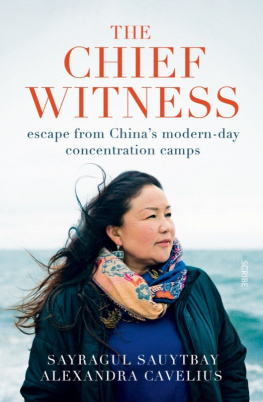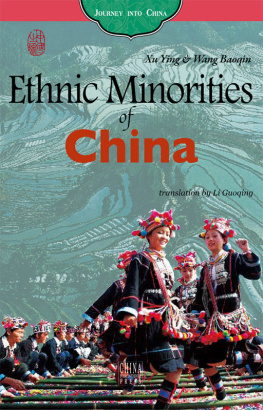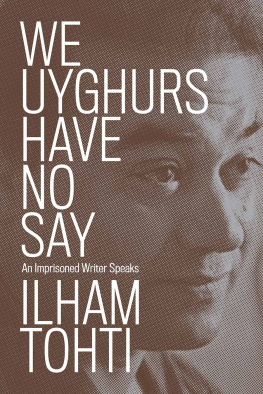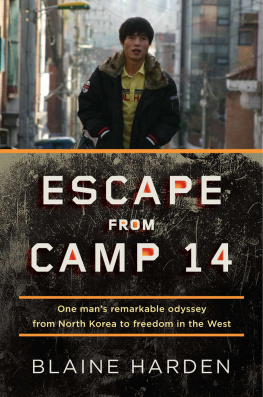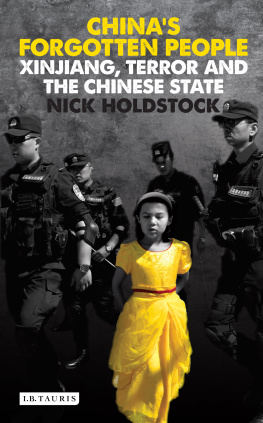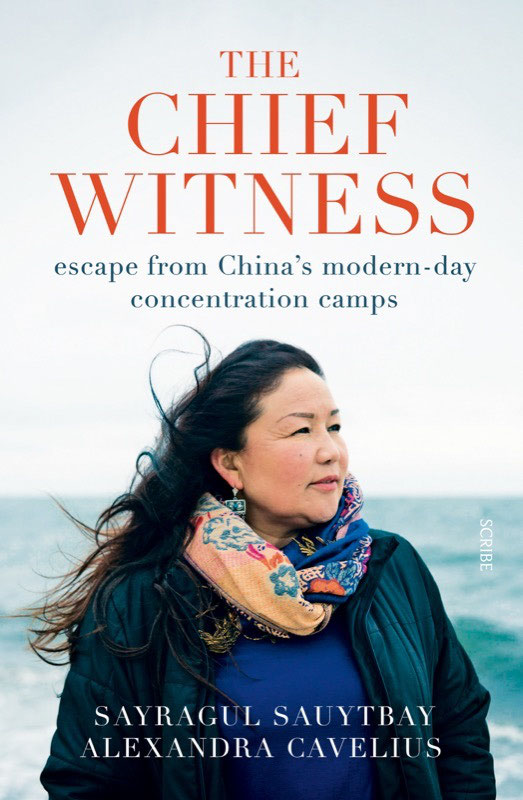THE CHIEF WITNESS
Sayragul Sauytbay was awarded the International Women of Courage Award by the US State Department in 2020. Her key witness accounts have already created a stir on the world stage, and have been reported by The New York Times, The Washington Post, and the Frankfurter Allgemeine Zeitung.
Alexandra Cavelius is a freelance author and journalist. She is published in renowned magazines, and is the author of several political nonfiction books. She was also the author of the bestseller Dragon Fighter, the autobiography of the Uighur political activist Rebiya Kadeer, who has been nominated several times for the Nobel Peace Prize.
Caroline Waight is an award-winning literary translator working from Danish and German.
Scribe Publications
1820 Edward St, Brunswick, Victoria 3056, Australia
2 John St, Clerkenwell, London, WC1N 2ES, United Kingdom
3754 Pleasant Ave, Suite 100, Minneapolis, Minnesota 55409, USA
First published in German in 2020 by Europa Verlag as Die Kronzeugin
First published in English by Scribe 2021
Copyright Europa Verlag AG, Zrich 2020
Translation copyright Caroline Waight 2021
All rights reserved. Without limiting the rights under copyright reserved above, no part of this publication may be reproduced, stored in or introduced into a retrieval system, or transmitted, in any form or by any means (electronic, mechanical, photocopying, recording or otherwise) without the prior written permission of the publishers of this book.
9781922310538 (Australian edition)
9781913348601 (UK edition)
9781950354528 (US edition)
9781925938777 (ebook)
Catalogue records for this book are available from the National Library of Australia and the British Library.
scribepublications.com.au
scribepublications.co.uk
scribepublications.com
Acknowledgements
My heartfelt thanks are due to the human-rights organisations of the United Nations; the Swedish government and its citizens; the people in Kazakhstan; the government of the Federal Republic of Germany; the Kazakh organisation Atajurt; all the international print media that followed my case; television and radio broadcasters in various countries; all journalists across a diverse array of media; and the Kazakh broadcaster Free Asia Television.
Sayragul Sauytbay
Contents
CHAPTER ONE
CHAPTER TWO
CHAPTER THREE
CHAPTER FOUR
CHAPTER FIVE
CHAPTER SIX
CHAPTER SEVEN
CHAPTER EIGHT
CHAPTER NINE
by Alexandra Cavelius
CHAPTER ONE
Ghosts of the Past
Women begging in the night
Every night, the crying girls crowd around my bed. Their dark eyes are wide, their heads shaved bald. Save us! they beg me. Please save us! Wherever despots rule, we women are always hardest hit. Its so easy to stifle us with the demons of helplessness, shame, and guilt. Yet its not women who should be ashamed of the wounds men have inflicted on us. Now all Ive got to do is internalise this truth. I try to struggle to my feet, but Im frozen, lifeless as a corpse.
Ever since the camp, I sometimes cant get out of bed. Its because I spent so long sleeping on a cold concrete floor. My limbs and joints ache with rheumatism. Before all this I was perfectly healthy: today, at forty-three, Im a sick woman. The minute I do drift off for a few seconds into uneasy sleep, my nightmares wake me.
None of the women, children, men, and elderly people behind those high barbed-wire fences have committed any crime, besides that of being born Kazakh, Uighur, or some other Muslim nationality in the north-west province of China. Of having Muslim names like Fatima or Hussein.
My name is Sayragul Sauytbay. Im married, once ran five kindergartens before my internment, and I love my family above all else. We come from Chinas north-west province, which is larger than Germany, France, and Spain combined, and situated roughly 3,000 kilometres as the crow flies from Beijing. Encircled by mountains up to 7,000 metres high, our province borders more foreign nations than anywhere else in China, including Mongolia, Russia, Kazakhstan, Kyrgyzstan, and Tajikistan, as well as Afghanistan, India, and Pakistan. Its here that China is closest to faraway Europe.
Since ancient times, the area has been home to a predominantly Uighur population, but there are also numerous other ethnicities represented, including Mongolians, Kyrgyzstanis, Tartars, and the second-largest group, the Kazakhs, to which I belong. Our province was called East Turkestan until, in 1949, China the vast empire next door violently annexed the whole region, a strategically advantageous area known informally as the Gateway to the West. Mao Zedong renamed it the Autonomous Region of Xinjiang (New Frontier), but to us it remains East Turkestan, our ancestral homeland. Officially, Beijing guarantees the indigenous people here autonomy, independence, and free will. Unofficially, however, the government treats us like a colony of slaves.
Since 2016, our province has been transformed into the largest surveillance state in the world. A network of more than 1,200 internment camps exists above ground, according to estimates by international experts, but there are increasing reports of subterranean camps as well. We estimate that approximately three million people are currently being detained. They have never stood trial. They have never committed a crime. This is the biggest systematic internment of a single ethnic group since the Third Reich.
Party officials forced me to stay silent about everything I witnessed as a senior public-sector worker in the nightmarish camps of East Turkestan or else youre dead. I literally had to sign my own death warrant. Despite all these obstacles, however, I ultimately managed to escape the largest open-air prison in the world and reach Sweden.
My situation is unusual, because I was put to work as a teacher in one of these camps. This position offered me an insight into the innermost workings of the system: and what I saw was a meticulously detailed, carefully considered piece of bureaucratic machinery that operated according to explicit instructions from Beijing. This wasnt just about systematic torture, humiliation, and brainwashing. This was the deliberate extermination of an entire ethnic group.
As we sit here, major corporations in the West are making a killing from their business dealings in north-west China. Yet a stones throw away from their buildings, children, women, men, boys, and the elderly are penned in like animals and tortured in unspeakable ways.
One in ten Muslims in my home province, according to human-rights agencies, is currently interned. This figure tallies with my own experience. I was in a camp myself, alongside 2,500 other prisoners. In the regional centre of Mongolkre called Zhaosu by the Chinese, home to 180,000 people there are two large prisons and three camps, set up in a converted former Party school and abandoned buildings. Assuming these house the same number of prisoners, then even in a tiny area like my home county there are roughly 20,000 being detained. By now, every Muslim family has been affected by these arrests. There is no longer anyone in Xinjiang who hasnt lost several relatives.
The evidence for these camps is overwhelming we have satellite images, documented witness statements, and, most recently, the release of the China Cables by a Chinese whistleblower so Beijing has finally admitted their existence, after long denying it. Yet senior Chinese politicians continue to talk euphemistically about vocational training centres; they churn out propaganda films that show students in nice make-up and pretty clothes dancing and laughing, taking classes in bright, beautifully appointed rooms, and being re-educated into better people. The official Party line is that the foreign media are spreading malicious lies, that all the students are there of their own free will, and that most have already been released anyway.

